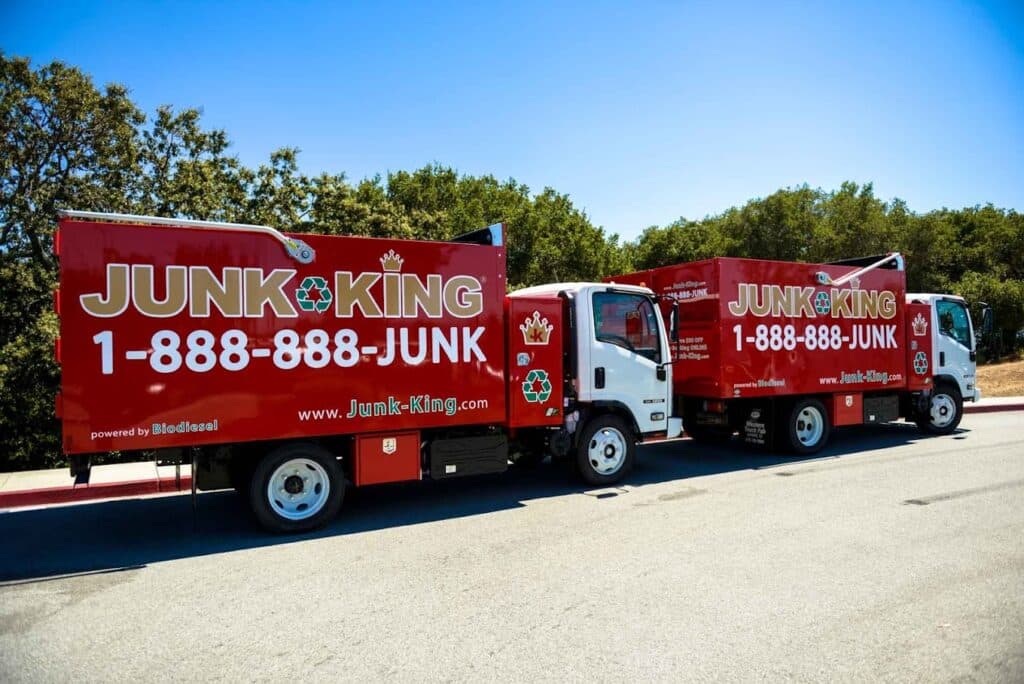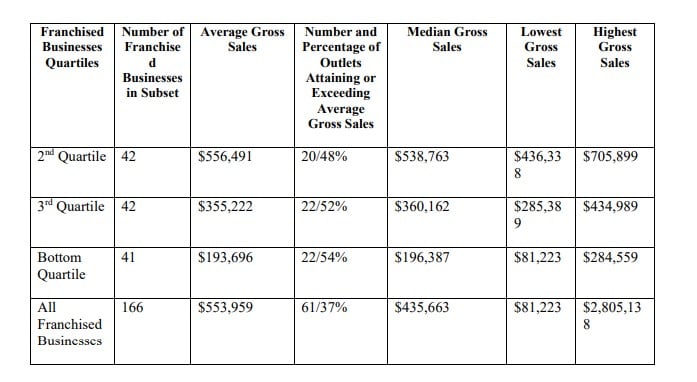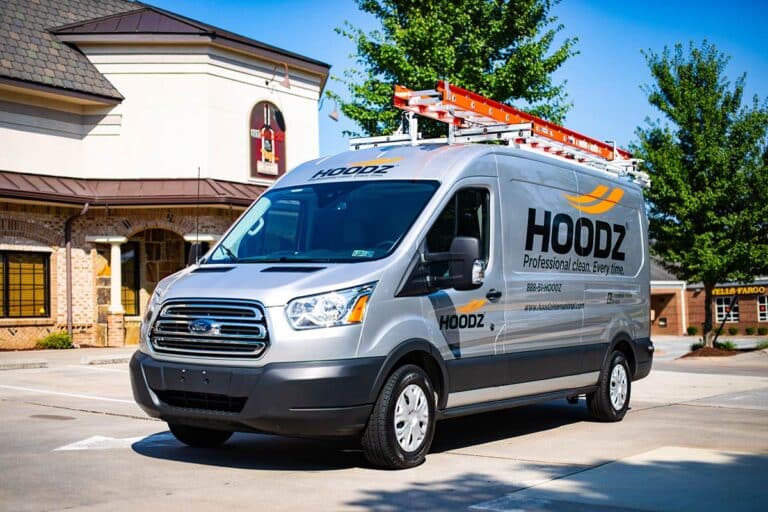Junk King Franchise FDD, Profits & Costs (2025)

Junk King, established in 2005 in San Carlos, California, is a leading junk removal and recycling company. Headquartered in Burlingame, California, the company began franchising in 2010 and has since expanded to over 165 locations across the United States and Canada.
Junk King specializes in removing non-hazardous items, including furniture, appliances, yard waste, and construction debris, serving both residential and commercial clients.
A key differentiator for Junk King is its commitment to eco-friendly practices; the company recycles, reuses, or donates approximately 60% of the materials it collects, significantly reducing landfill waste.
Additionally, Junk King’s trucks are 20% larger than those of many competitors, allowing for more efficient service and cost savings for customers. The company also offers multiple revenue streams, including standard junk removal, dumpster rentals, and recycling services.
Initial Investment
How much does it cost to start a Junk King franchise? It costs on average between $125,000 – $300,000 to start a Junk King franchised facility.
This includes costs for construction, equipment, inventory, and initial operating expenses. The exact amount depends on various factors, including the location, and whether the franchisee chooses to lease or purchase the property.
| Type of Expenditure | Amount |
|---|---|
| Initial Franchise Fee | $55,000 – $77,000 |
| Travel and Living Expenses While Training | $1,200 – $5,000 |
| Inventory and Supplies | $800 – $1,500 |
| Fixtures, Furniture, and Equipment | $0 – $3,000 |
| Signage | $500 – $1,000 |
| Vehicles | $19,200 – $100,000 |
| Office and Warehouse Lease | $1,500 – $7,000 |
| Professional Fees | $0 – $3,000 |
| Security Deposits, Utility Deposits, Business Licenses and Other Prepaid Expenses | $2,200 – $5,000 |
| Additional Funds – 3 months | $45,000 – $97,500 |
| Total | $125,400 – $300,000 |
Average Revenue (AUV)
How much revenue can you make with a Junk King franchise? A Junk King franchised business makes on average $436,000 in revenue (AUV) per year.
Here is the extract from the Franchise Disclosure Document:

This compares to $383,000 yearly revenue for similar waste franchises.
Download the Franchise Disclosure Document
Frequently Asked Questions
How many Junk King locations are there?
As of the latest data, Junk King operates 172 locations across the United States and Canada, all of them franchise-owned. This extensive network underscores Junk King’s significant presence in the junk removal and recycling industry.
What is the total investment required to open a Junk King franchise?
The total investment required to open a Junk King franchise ranges from $125,000 to $300,000.
What are the ongoing fees for a Junk King franchise?
A Junk King franchise requires an 8% royalty fee on gross revenue. Additionally, franchisees pay a Customer Care Center fee of 5% and a Marketing, Advertising, and Promotion (MAP) fee starting at $575 per month, rising to $795 after the first year. Local Marketing Group fees may also apply, up to 3% of gross sales, or $400 monthly, with a six-month waiver for new franchisees.
What are the financial requirements to become a Junk King franchisee?
To qualify as a Junk King franchisee, candidates should possess a minimum net worth of $150,000 and at least $50,000 in liquid assets. These financial benchmarks ensure that franchisees have the necessary resources to establish and sustain their operations effectively.
How much can a Junk King franchise owner expect to earn?
The average gross sales for a Junk King franchise are approximately $0.44 million per location. Assuming a 15% operating profit margin, $0.44 million yearly revenue can result in $66,000 EBITDA annually.
Who owns Junk King?
Junk King is owned by Neighborly, which acquired the company in November 2022. This acquisition made Junk King part of Neighborly’s expansive portfolio of home service brands.
Disclaimer
Disclaimer: This content has been made for informational and educational purposes only. We do not make any representation or warranties with respect to the accuracy, applicability, fitness, or completeness of the information presented in the article. You should not construe any such information or other material as legal, tax, investment, financial, or other professional advice. Nothing contained in this article constitutes a solicitation, recommendation, endorsement, advertisement, or offer to buy or sell any franchises, securities, or other financial instruments in this or in any other jurisdiction in which such solicitation or offer would be unlawful under the franchise and/or securities laws of such jurisdiction.
All content in this article is information of a general nature and does not address the detailed circumstances of any particular individual or entity. Nothing in the article constitutes professional and/or financial and/or legal advice, nor does any information in the article constitute a comprehensive or complete statement of the matters discussed or the law relating thereto. You alone assume the sole responsibility of evaluating the merits and risks associated with the use of any information or other content in this article before making any decisions based on such information or other content.




